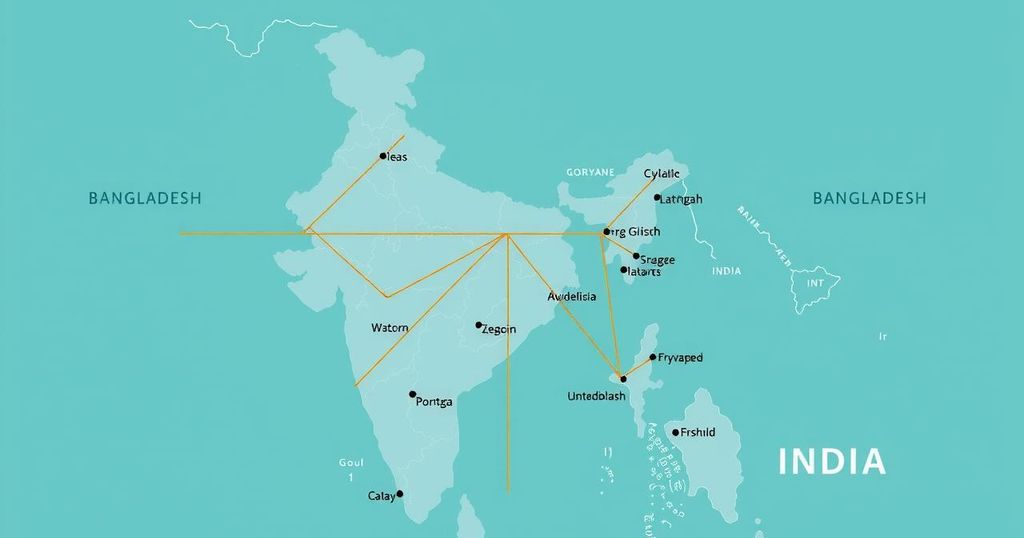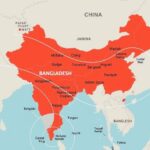Bangladesh Appeals to China for Extension, Implicating India’s Northeast
Bangladesh’s Muhammad Yunus issued remarks to China suggesting an extension into India’s northeastern states, which he claimed are landlocked by Bangladesh. This appeal raises geopolitical concerns for India. Yunus engaged with Xi Jinping about enhancing maritime cooperation and sought assistance in river water management, particularly regarding the Teesta River shared with India, highlighting a shift towards closer ties with China.
Recently, Muhammad Yunus, an adviser to the interim government of Bangladesh, issued a controversial appeal during a visit to Beijing. He suggested that China should extend its influence into India’s northeastern states, which he described as landlocked by Bangladesh to the west, effectively implying a potential threat to India. This statement, deemed distasteful by defense analysts, surfaced publicly on social media following Mr. Yunus’s return to Bangladesh.
In a video, Mr. Yunus articulated that the northeastern states, known as the “seven sister states,” are cut off from direct ocean access. He positioned Bangladesh as a crucial guardian of maritime opportunities for the region. He further noted that this situation presents significant possibilities for China to establish economic ventures, potentially enhancing its influence in South Asia.
Criticism of Mr. Yunus’s remarks emerged swiftly, exemplified by Sanjeev Sanyal, a member of Prime Minister Modi’s economic advisory council, who addressed the implications of Yunus’s comments through a post on X. He questioned the relevance of the landlocked status of the Indian states in the discussion and welcomed Chinese investment in Bangladesh while expressing concern over its geopolitical messaging.
During his visit, Mr. Yunus engaged in discussions with Chinese President Xi Jinping concerning maritime cooperation between the two nations. Subsequently, they reached agreements for Chinese involvement in modernizing Mongla Port and expanding the Chinese Economic and Industrial Zone in Chattogram, with substantial financial commitments from China for these projects.
In addition to infrastructure, Mr. Yunus sought China’s assistance in river water management, specifically regarding the Teesta River, which Bangladesh shares with India. The Yunus government’s proposed intervention highlights a shift in international relations, as Bangladesh seeks collaboration with China for managing its broader river systems. An agreement was also signed with China on hydrological information exchange concerning the Yarlung Zangbo-Jamuna River, further entwining the two nations’ environmental strategies.
In summary, Muhammad Yunus’s call for China’s extension into India’s northeastern states underscores a potential geopolitical shift in South Asia. While seeking Chinese investment in infrastructure development, the statements made raise implications for regional stability and India’s security concerns. Bangladesh’s pursuit of assistance from China, particularly regarding water management, signals a significant change in its diplomatic relations. The unfolding dynamics could reshape the balance of power in the region significantly.
Original Source: www.ndtv.com








Post Comment